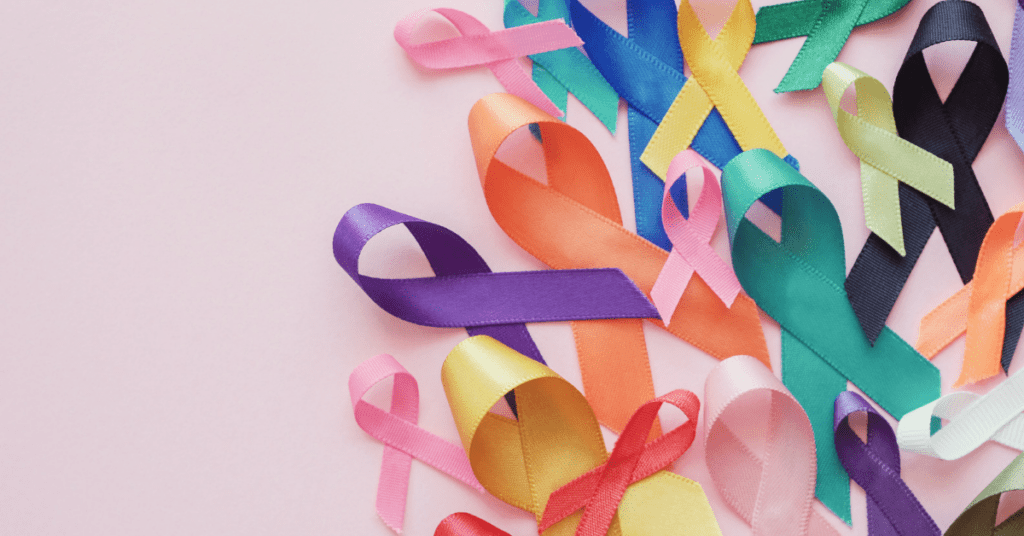When thinking about typical cancer treatments, most people default to chemotherapy. However, it’s common for many different treatments to be used alone or in conjunction with each other, including surgery, radiation, and stem cell or bone marrow transplant. Many patients are also prescribed a course of immunotherapy, such as interferon therapy.
If you’ve been prescribed a lesser-known cancer therapy, you may be feeling nervous and uncertain about undergoing an unfamiliar form of care. But Aynjil is here to support you through many different treatments with the information and reassurance you need. So if you’re beginning interferon therapy, here’s what you can expect.
What Is Interferon Therapy?
Immunotherapy is a systemic treatment that travels through your bloodstream, reaching all body parts and stimulating your immune system to detect and kill cancer cells. One such immunotherapy uses Interferons.
Interferons are a naturally occurring substance made in the body by white blood cells that helps the immune system fight off diseases, including cancer. They can also be made in a laboratory. When used as cancer therapy, interferons can kill cancer cells and may help keep cancer cells from growing.
Most commonly, patients receive interferon as an adjuvant therapy, which is additional cancer treatment given after the primary treatment to lower the risk of cancer returning.
Why Immunotherapy?
Immunotherapy is typically recommended in one of two scenarios:
- To help patients with advanced cancer control the disease.
- For those who have already received another treatment, such as chemotherapy, to keep cancer from returning.
Clinical trials are currently being conducted to see if immunotherapy can be used to treat more nonmetastatic, early-stage cancers. Achieving the same long-term outcome from chemotherapy without the side effects would be a win-win for both oncologists and patients alike. But in the meantime, immunotherapies are being used in conjunction with other treatments to support cancer recovery.
Not all cancers have been approved for immunotherapy treatment, but some cancers that may be treated with interferon therapy are:
- Lymphoma
- Stomach Cancer
- Liver Cancer
- Bladder Cancer
- Cervical Cancer
- Some Breast Cancers
What Is Interferon Alfa?
There are several different types of interferon drugs, but when it comes to cancer treatment, Interferon alfa is the most commonly used option.
Interferon alfa is the generic name for the drugs Intron® A and Roferon®-A. These drugs stimulate T-cells and other immune cells to attack cancer in your body. Interferon alfa belongs to the family of proteins called cytokines, which communicate between the body’s immune system and various cells. They mobilize and stimulate the immune system to help it do its job effectively. They also send signals that can trigger abnormal cells to die while normal cells live longer.
How Is Interferon Alfa Administered?
Usually, interferon alfa is given through subcutaneous injection under the skin into the top of the arm, stomach, or thigh. There is currently no oral form of this drug, and due to the differences in dosage, you should not change brands of interferons once a course of treatment has begun.
The amount of interferon alfa you receive will depend on many factors, including the type and stage of the cancer, plus your weight, height, and general health.
How often you receive interferon alfa will also depend on the type of cancer you have. Typically, you will receive it every day or three times a week and, depending on your needs, it will need to be administered for several months.
How Does Interferon Alfa Work?
There are a couple of ways that interferon alfa fights cancer. One way is by directly interfering with the cancer cells and their ability to divide. Another way is by indirectly modifying how the body responds to cancer cells.
What Are the Side Effects of Interferon Alfa Therapy?
The lack of intense side effects is one of the many draws of interferon alfa therapy. The most typical side effect is that after receiving the injection, the skin may get red and itchy, and you may experience a dull ache or sting for a short time.
If you are still worried about experiencing side effects from interferon alfa therapy, bear in mind:
- They are usually reversible and will typically go away after completing treatment.
- Side effects can be predictable as far as their onset and duration.
- There are many options available to help prevent or minimize them.
- Most people do not experience most of the common side effects.
Typical Side Effects
With interferon therapy, even the typical side effects are relatively uncommon. As such, these potential effects only tend to happen to about 10% of patients receiving interferon alfa. Patients may experience a few, but rarely all of them.
- Difficulty Sleeping and Fatigue: If this is an issue for you during treatment, try to establish a physical routine by going to bed and waking up at the same time daily. Bolster this by relaxing and turning off your phone and other devices at least an hour before bedtime.
- Headaches and Dizziness: Your doctor can prescribe painkillers to help with headaches. If you experience dizziness, it is recommended that you do not drive.
- Increased Risk of Infection: This happens due to a drop in your white blood cells. Infections during cancer treatment can be life-threatening. If you notice aching muscles, headaches, a change in body temperature, or other flu-like symptoms, contact your doctor immediately.
- Dry Mouth: Also called xerostomia, drink plenty of fluids to combat dry mouth during interferon therapy. You can also talk to your doctor or nurse about artificial saliva.
- Abdominal Pain and Diarrhea: Again, let your healthcare team know if you are dealing with either of these side effects. They can give you medicine to help alleviate these symptoms. If you have had four or more loose stools within 24 hours, contact a doctor immediately so they can help you to replace vital fluids and avoid dehydration.
- Hair Loss: With interferon alfa, your hair may thin, but losing it all is highly unlikely and only temporary. Your hair will grow back after completing treatment.
- Taste Changes and Loss of Appetite: You may find that some foods may taste different or have less flavor during interferon treatment. But even if you do not feel like eating, it is important to maintain healthy eating habits during cancer treatment, so you may want to work with a dietician. Your taste and appetite will go back to normal a few weeks after you complete treatment.
Occasional Side Effects
These rarer side effects happen to less than 10% of patients:
- A drop in the number of red blood cells and platelets in your bloodstream (potentially causing tiredness, nosebleeds, or bleeding gums)
- Changes in the levels of thyroid hormones
- Low levels of calcium in your body
- Dehydration
- Tremors
- Redness, pain, and inflammation in your eyes
- Tinnitus
- Heart palpitations, a high heart rate (tachycardia), and high blood pressure
- Coughing
- Difficulty breathing
- Constipation
- Frequent urination
- Loss of sex drive
- Painful periods
What Are Some Self-Care Tips During Interferon Therapy?
While going through any cancer treatment, including interferon therapy, the following tips can help you cope with and diminish some of the side effects.
- Remaining hydrated is of the utmost importance, so drink at least two to three quarts of approved fluid every 24 hours, unless instructed otherwise by your doctor.
- You are at a higher risk of infection with a weakened immune system, so avoid crowds, sick people, and wash your hands often.
- Avoid sun exposure as much as possible. When exposure is unavoidable, wear plenty of sunblock and protective clothing.
- To help with headaches, general aches and pains, or fever, take acetaminophen or ibuprofen for some relief.
- To help reduce nausea, eat smaller, more frequent meals and take anti-nausea medications prescribed by your doctor.
- Get plenty of rest and conserve your energy as much as possible.
- Remain as active as your body and doctor will allow, even if it is just an easy, daily walk around your neighborhood.
- Avoid drinking alcohol.
Aynjil Insurance
Whatever therapy you’re going through, it’s bound to be scary at first. But you’re not alone.
We started Aynjil because we have been personally affected by cancer in our own lives, and throughout these experiences, we saw how the average health insurance does not cover the complete needs of a cancer patient.
At Aynjil, we understand that cancer treatment costs go far beyond diagnosis and treatment. We have designed our product with your emotional care, lifestyle needs, and overall health and wellbeing in mind. Designed to work in conjunction with your primary health insurance, our unique and specified cancer insurance has no fine print, no ambiguous clauses, and is economically priced.
Let us help by easing some of the burden associated with the life-altering diagnosis and treatment of cancer. Every new patient will receive our Aynjil Care Pack, providing invaluable information to guide both you and your family while on your journey to recovery. Simply visit aynjil.com today to get you and your family covered.
Marketing by Joseph Studios



